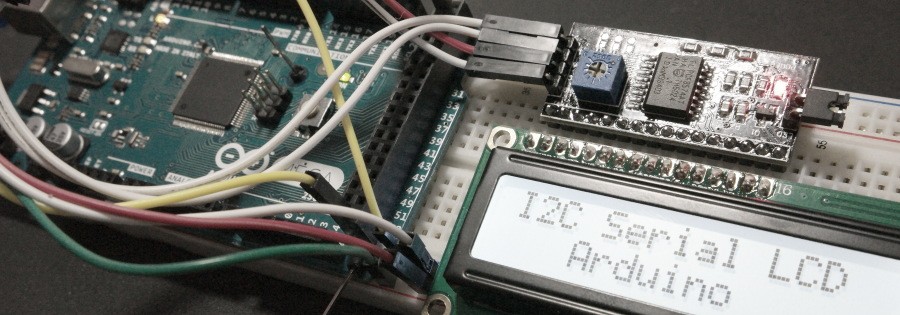In this post I’m going to show you how to use a Serial I2C Interface Module to control 2×16 LCD display with Arduino. For similar design using PIC16F876 click this link. Instead of using 8 or 4 bit parallel connection from Arduino board to LCD only 2 pins are required. One for sending the Data (SDA) and the other is Clock (SCL). If your application needs a lot of I/O’s this module can be very useful. Serial I2C Interface Module is based on PCF8574
SDA,SCL pins are located in different places on Arduino UNO and MEGA boards. For Arduino MEGA
In some forums 0x20 or 0x27 was suggested as the module address. However it was not working for me. So I’ve used a simple loop with delay to scan for correct address. Basically after connecting the I2C module to Arduino you start sending a new address until the LCD responds. After a few tries 0x3f seems to work OK with this module. This simple design was tested on Arduino MEGA board and should work on other compatible devises.

